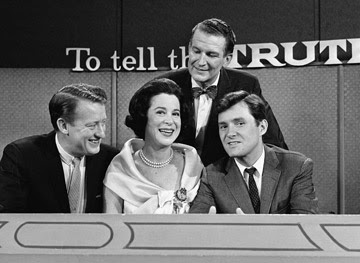The Routledge Fourth Wall series specializes in short books about famous plays. Poet, arts journalist, and acclaimed musical theatre expert, Keith Garebian has neatly combined queer theory, biography, and his own special brand of accessible, engaging writing that adds a unique perspective to the presence of a great play that became a great musical. He doesn’t shy away from the intimate personality details that mingle with the characters that both Julie Andrews and Rex Harrison brought to their interpretations of the pivotal roles of Eliza and Henry. Nor does he mince words about Moss Hart’s presence as a closeted homosexual director who brought the kind of vigour and skill necessary to push this iconic score through arduous rehearsals, revisions, and a variety of fascinating behind the scenes scenarios. My favourite is Hart’s wife Kitty Carlisle, a woman who rose (at one point in her varied career) to miniature fame as a panelist on the television game show To Tell the Truth when I was a growing fairy. There was something both regal, smug, and endearing about her old world, socialite grandeur in the midst of a kind of hybrid precursor to the rampant reality television we find ourselves drowning in today.
Having heard rumours of his [Moss Harts’s] bisexuality, Carlisle once asked him: “Are you homosexual?” To which he replied: “Absolutely not!” (29)
In light of a later insertion in Garebian’s text, Carlisle had her truth and Hart had his - according to a close friend Hart once exclaimed “If I could love somebody, I wouldn’t care if it was a man, a woman, or a pig.” (28)
I mention this variegated 'truth' in relation to Garebian’s new book because it bears an indirect relation to the ways in which the movement from classic play (Shaw’s Pygmalion) to popular musical theatre (My Fair Lady) and the mixture of life and art that Garebian inserts into his novella sized essay - how it all blends in delightful and provocative ways. Telling the truth in the light of late twentieth century queer theory, with the aid of extensive research and impressive knowledge of the musical theatre genre, Garebian gives his reader a delightful and enlightening new look at an old somewhat “politically incorrect” text. Not to dismiss the beauty of the songs, or the romance of the tale, and yet Garebian himself speaks directly to the misogyny of the text, to Harrison’s reputation as a somewhat abrasive ladies man, Andrews trained 'innocence' and "chaste femininity" that had to be sculpted carefully by Hart, not to mention the subtly crafted homosocial triangle that occurs between the two men vying for the attention of the fair lady.
If it is an exaggeration to call the situation [between Higgns and Pickering] homosexual, its s certainly fair to call it “homosocial,” as Stacy Wolf does…but I prefer to call it homo-social. Borrowing Eve Kosofsky Sedgwick’s theory of triangulation, Wolf illuminates the central developing relationship of Higgins and Pickering in order to reveal how this “homo-sociality” delightfully undoes heterosexual presumption”…despite, I would add, the machismo of Rex Harrison and the chaste femininity of Julie Andrews.
It is the mixture of machismo, innocence, and a severely delineated class strucutre - the division between the rich and the poor - that creates the dramatic tension - a tension that is simultaneously heightened and alleviated through song (courtesy of the genius of Lerner and Loewe) that gives Garebian's text such a lively and engaging tone - contributing to an ongoing discussion regarding one of the most popular pieces of 20th century musical theatre.
It is the mixture of machismo, innocence, and a severely delineated class strucutre - the division between the rich and the poor - that creates the dramatic tension - a tension that is simultaneously heightened and alleviated through song (courtesy of the genius of Lerner and Loewe) that gives Garebian's text such a lively and engaging tone - contributing to an ongoing discussion regarding one of the most popular pieces of 20th century musical theatre.
KEITH GAREBIAN IS CURRENTLY WORKING ON A LONG ESSAY ON 'GYPSY' THAT ANALYZES IN GREAT DETAIL THE GENDER AND SEXUAL THEMES IN THE MUSICAL.





No comments:
Post a Comment